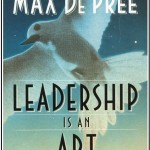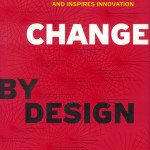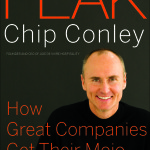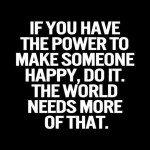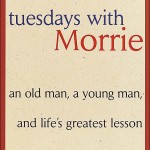“When two people respect each other, the ability to be vulnerable and to reveal hurt feelings can create a powerful emotional connection that is the source of real intimacy and friendship.”
The good news is that anxiety, guilt, pessimism, procrastination, low self-esteem, and other “black holes” of depression can be cured without drugs. In Feeling Good, eminent psychiatrist, David D. Burns, M.D., outlines the remarkable, scientifically proven techniques that will immediately lift your spirits and help you develop a positive outlook on life. Now, in this updated edition, Dr. Burns adds an All-New Consumer′s Guide To Anti-depressant Drugs as well as a new introduction to help answer your questions about the many options available for treating depression.
– Recognise what causes your mood swings
– Nip negative feelings in the bud
– Deal with guilt
– Handle hostility and criticism
– Overcome addiction to love and approval
– Build self-esteem
– Feel good everyday
[From: Amazon.com]
“Perfection’ is man’s ultimate illusion. It simply doesn’t exist in the universe…. If you are a perfectionist, you are guaranteed to be a loser in whatever you do.”
Feeling Good grew out of dissatisfaction with conventional Freudian treatment of depression. Burns’s mentor, Dr. Aaron T. Beck (considered the “father” of cognitive therapy; Dr. Albert Ellis is considered the “grandfather”), concluded that there was no empirical evidence for the success of Freudian psychoanalysis in treating depressed people. The idea that negative feelings such as depression and anxiety are triggered by our thoughts or perceptions has a long history, dating back to the Greek philosopher Epictetus, who said that people are disturbed not by things but by the way we think about them.
The book has sold over four million copies in the United States, and has also been published in Argentina, Australia, Austria, Canada, China, France, Germany, India, Indonesia,Iran, Israel, Japan, Korea, Mexico, Norway, Poland, Portugal, Spain, Yugoslavia and many other countries. It was named one of the top ten behavioral science books of 1980 by the journal Behavioral Medicine, while according to The Authoritative Guide to Self-Help Books (New York: Guilford Press, 1994) it is the book most frequently recommended for depressed patients by mental health professionals in the United States. It was also rated the top self-help book for depressed individuals, based on a national survey of more than 500 mental health professionals’ evaluations of 1,000 self-help books. Burns’s The Feeling Good Handbook was rated #2 in the survey. A commentary on Feeling Good is included in 50 Psychology Classics (2006) by Tom Butler-Bowdon.
Weak evidence suggests that bibliotherapy based on cognitive behavioral therapy will help some people when they receive some additional guidance.
Feeling Good has been studied in its use in self-directed bibliotherapy for depression. One study of older adults with mild to moderate depression found that reading this book, with brief intermittent phone check-in sessions, was an effective treatment for depression.
In her text on Cognitive Therapy, Beck’s daughter Judith S. Beck recommends it as a “layman’s book” to be used by patients undergoing CBT. [From: Wikipedia.com]
“Aim for success, not perfection. Never give up your right to be wrong, because then you will lose the ability to learn new things and move forward with your life. Remember that fear always lurks behind perfectionism. Confronting your fears and allowing yourself the right to be human can, paradoxically, make yourself a happier and more productive person.”
It’s actually not quite as new as the title might imply. The initial work on this new therapy was begun by Aaron T. Beck in the mid 50’s. Dr. Burns has also been intimately involved in the development of this new therapy and is an expert in the field.
To be so effective, cognitive therapy is actually very simple. The principle behind it is that if we think something often enough we begin to believe in its truth. Depressed people are haunted by constant negative thoughts, called Cognitive Distortions, which are usually a gross distortion of reality. For example, a person may say, “I’m a failure at everything”. If they examined the situation from a logical standpoint they would immediately see this is far from the truth. They may not have succeeded at a few things, but they have many, many more successes than failures.
For depressives, however, their past successes quickly fade from view and they concentrate only on the negative. What cognitive therapy teaches us is to avoid making this kind of logical error. It teaches us to reframe our thoughts in a way that’s more consistent with reality. When we begin to make more positive and truthful statements on a regular basis we also feel better.
One very big strength of Dr. Burn’s book is that he takes each of the ten common cognitive distortions and treats them individually giving powerful coping strategies for each one. This book is a useful guidebook to any patient who is undergoing treatment for depression, whether it is medication alone, therapy alone or combined therapy and medication. It is also a wonderful guidebook for those who wish to help themselves without the aid of a therapist. Dr. Burns gives us all the tools we need to begin turning our moods around.
What makes this book really outstanding to me, however, is the fact that Dr. Burns actually practices what he preaches. He often uses the strategies that he teaches in his own life to help diffuse stress and keep a positive outlook. If this can work for someone in a high stress field like medicine then it can certainly work for any of us! [From: Depression.about.com]
“The secret of successful treatment is not to become a perfect, shining star or to learn to be in complete control of your feelings. These strategies are doomed to failure. In contrast, when you accept yourself as an imperfect but eminently lovable human being, and you stop fighting your emotions so strenuously, your fear will often lose its grip over you.”
About the Author:
Burns received his B.A. from Amherst College in 1964 and his M.D. from the Stanford University School of Medicine in 1970. He completed his residency training in psychiatry in 1974 at the University of Pennsylvania School of Medicine, and was certified by the American Board of Psychiatry and Neurology in 1976. Burns is the author of numerous research studies, book chapters and books. He also gives lectures and conducts many psychotherapy training workshops for mental health professionals throughout the United States and Canada each year. He has won many awards for his research and teaching, and has been named “Teacher of the Year” three times by the graduating class of psychiatric residents at the University of Pennsylvania School of Medicine.
Burns was an early student of Aaron T. Beck who developed cognitive therapy from 1950s work by Albert Ellis (whose work was based on that of Alfred Adler).
Burns is on the voluntary faculty of the Stanford University School of Medicine, where he is actively involved in research and training. He also serves as a statistical consultant for Stanford’s new Center for Interdisciplinary Brain Sciences Research. He has also served as Visiting Scholar at the Harvard Medical School and Acting Chief of Psychiatry at the Presbyterian / University of Pennsylvania Medical Center in Philadelphia. [From: Goodreads.com]
“Much everyday anger results when we confuse our own personal wants with general moral codes.”
Now Watch This Video:
Feeling Good – David Burns ; TIME 12:23 minutes
If you like this story, CLICK HERE to join the tribe of success-minded people just like you. You will love our weekly quick summaries of top stories, talks, books, movies, music and more with handy downloadable guides, cheat sheets, cliffs notes and quote books.



